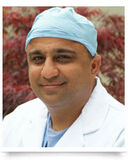Ask the Expert: What Should You Know About Atrial Fibrillation & Heart Valve Disease?
By Adam Pick on March 16, 2015
To support the launch of our new Atrial Fibrillation Education Center, I traveled to Norfolk, Virginia to meet with Dr. Jonathan Philpott, a cardiac surgeon at Sentara Heart Hospital, who specializes in concomitant heart valve and atrial fibrillation therapy.
During my interview, Dr. Philpott shared many insights about the symptoms, the causes and the risks of atrial fibrillation. In addition, Dr. Philpott shared some eye-opening facts about the lack of AFib treatment for patients who undergo heart valve repair or replacement surgery. Specifically, Dr. Philpott noted that up to 70% of patients who have heart valve surgery do not get surgical AFib treatment using the Maze procedure. Essentially, the AFib is just “left behind”.
On behalf of our patients and caregivers, I wanted to thank Dr. Philpott and the Sentara Heart Team for taking the time to share their very important research and clinical experiences with our community.
- Visit our new Atrial Fibrilation Education Center.
- Find a list of AFib cardiac centers and surgeons by clicking here.
Keep on tickin!
Adam
P.S. For the hearing impaired members of our community, please find below a written transcript of this video.
My name is Jonathan Philpott and I’m the Director of Surgical Electrophysiology here at Sentara Heart Hospital here at Norfolk, Virginia. I like to perform complex micro-valve repair and replacement, aortic valve and root replacement, and I do a fair amount of asinine aortic and arch work. I was very, very good at many other aspects of cardiac surgery.
Then when it came to AFib, it was a bit nebulous. People were doing it very differently. Nobody really knew exactly what was critical and what wasn’t. I began seeking out other leaders across the country and then finally the pioneers, Dr. Cox and Dr. Damiano. From them and traveling to them and watching them operate, I slowly became an expert in atrial fibrillation.
Atrial fibrillation is one of the most common diagnoses in cardiology and in cardiac surgery. It’s when the upper chamber of the heart begins to quiver because a multiple of electrical signals are spinning around and generating a pattern that makes it look all chaotic but it’s not. It’s just perfect mathematics and wave fronts that are running into each other, like kids in a swimming pool creating lots of little tiny waves.
The problem is that each one of those little waves, as they travel down to the lower chamber of the heart, or the ventricle, they cause it to beat. A lot of patients describe atrial fibrillation as feeling their heart beating left and right and up and down and irregularly. Almost like a small kid just banging on a drum. Sometimes hitting it hard and other times just hitting it really fast.
The other problem with atrial fibrillation though is it causes, in some folks, their heart to become very weak and they develop heart failure, and it’s not uncommon for them to need a transplant. Most atrial fibrillations patients are very, very attuned to the fact that atrial fibrillation causes strokes. It’s very common for patients with heart valve disease to also have AFib. This is not something that happens very rarely, it’s extremely common.
In our own practice, I would say offhand there’s probably 20 to 30% of our patients, at a minimum, have it. It becomes more common the more complex the cardiac valvular problem is. The best way to treat a patient who has a heart valve issue, and who also has atrial fibrillation, is to do it at the same time, and to do both operations precisely and correctly.
The vast majority of patients that go to the operating room for open-heart surgery do not get their AFib treated. About 70% of them overall don’t. It scares me why we’re not performing this operation that works if done correctly on patients. I think there are a lot of reasons why. It adds time. There have been concerns that it increased the risk with the procedure but those have all been debunked. The safety is actually the same, if you include it.
In our own hands, what we’ve found is that post-operatively the patients who have their AFib treated are doing better, and that’s on multiple levels. It’s not just the symptomatology but it’s also the fact that you frequently can get them off of their blood thinners and their anti-rhythmic medications. Those are incredibly difficult to take in some patients.
Medications do have a role in atrial fibrillation early on, but once it becomes advanced, and once you have heart valve disease, it’s not going to stop with medications, except in rare cases. The standard of care, and this is endorsed by just about every medical and surgical society out there, is that you have a concomitant atrial fibrillation procedure, typically the Maze procedure, performed at the time of your heart valve procedure.
What is the Maze procedure? Let’s just demystify that for a second. The upper part of the heart is quivering because there’s all these little circuits that are spinning around, much like kids in a swimming pool again. The whole idea is that you put compartments into the atrium, like these long electrical dams that act just like lap lines in the swimming pool. Now, instead of the waves being able to cross, they hit the lap line, or the electrical dam, and they stop.
It’s an operation that is very detail-specific. You have to slow down and really take your time. If you do it correctly, the safety is great and the risk is not any higher. What we’ve found is that the improvement in quality of life and safety down the road is absolutely dramatic.
If there’s one message I want to get across to patients who are out there because, again, I’ve had a brief episode of AFib myself, and I know what it’s like to have it for a few minutes and how anxiety provoking it really can be, is that if you’re going to have surgery for your valve and you have AFib, do your research and find somebody, nationally, who’s an expert in the treatment of atrial fibrillation in the Cox-Maze IV procedure. That kind of person needs to be doing it frequently, and I would expect that they know what their own results are. If they have that data and they’re comfortable with it and they do a great job with it, then you’re in the right hands. If they’re not, then you need to seriously think about going to some place where they can do it.
|
dianelexi7@google.com says on June 10th, 2015 at 9:30 pm |
|
Can you develop AFib while you are 100% pacemaker dependent? It started |
 |













